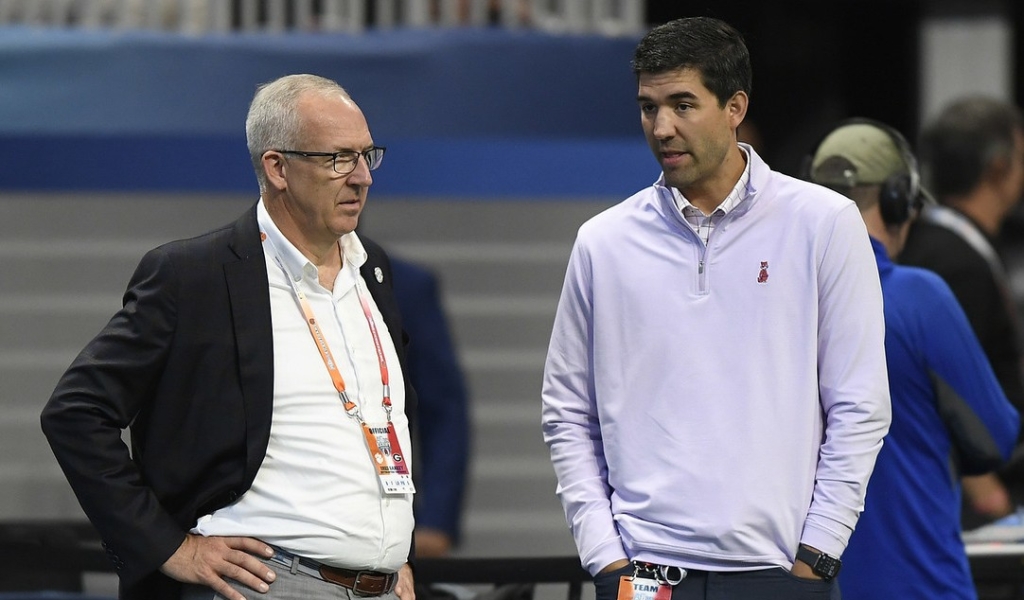CLEMSON — Early Thursday morning, a new bill in Michigan was introduced that will ban schools from complying with NIL investigations and prohibit required reporting of NIL deals to the NCAA, the College Sports Commission and Deloitte.
This bill will contradict new enforcement rules and will require schools to break the affiliation agreement they plan to sign. The state of Tennessee introduced a similar bill to its legislative body last month, which is known as Bill No. 536.
What does all of this mean?
It means these two states have started an attack where they hope to blow up plans from the NCAA and the four power conferences to police revenue-sharing in college sports, while taking aim at the athlete compensation cap, the severe penalties for rule-breakers and the policies that prevent phony booster-backed NIL deals to players.
In other words, they are trying to create chaos.
Will it work?
NCAA President Charlie Baker does not think it will.
In an article written by Yahoo Sports’ Ross Dellenger, he writes how many doubt the clearinghouse will withstand inevitable legal challenges, administrators here provided legitimate reasons for why they believe in its long-term survival. Most notable of those, says NCAA president Charlie Baker, is that the clearinghouse’s appeals process — arbitration — is equipped with subpoena powers.
“They do have that power,” Baker told Yahoo Sports. “Arbitration typically has subpoena power and I’m pretty sure since this one sits inside an injunction, they will have it.”
Dellenger wrote that officials at the power conferences confirmed that “significant subpoena powers” exist under the arbitration appeals process, but those powers are less expansive than subpoena authority within a courtroom.
The decision to use subpoena powers and how to use them is expected to rest with the arbitrator presiding over the appeals process.
A subpoena is a legal document issued by a court or other authorized body that compels an individual to appear in court or at a deposition to give testimony or provide documents or other tangible evidence.
“We won’t have complete subpoena power, but if an athlete goes into arbitration … those records, you can get access to some of those records,” said Ohio State athletic director Ross Bjork in the article.
Bjork is a member of a settlement implementation committee that helped construct the new enforcement entity, along with Clemson athletic director Graham Neff.
In the article, Neff details the factors used to form a compensation range.
“Athletic performance is a big part of it. Your social media reach and following. Market — where schools are at. The reach of your school within said market,” he said.
According to Neff, the reach will vary by school.
“The reach of Georgia Tech in Atlanta is different than the reach of Georgia State,” he says.
Neff believes that a “majority” of NIL deals will derive from “associated companies,” as school sponsors, multi-media rights partners and individual alumni and boosters work to provide universities with additional compensation so they can exceed the $20.5 million revenue sharing cap that each school is afforded.
Third-party NIL compensation that passes the clearinghouse does not count against the cap. As Neff said, “There’s some toothpaste back in the tube.”
Deloitte, which is a multinational professional accounting services network based in London, is one of the Big Four accounting firms. According to Dellenger, Deloitte claims that 70 percent of past deals from booster collectives would have been denied in their algorithm, while 90 percent of past deals from public companies would have been approved.
Deloitte also shared with officials that about 80 percent of NIL deals with public companies were valued at less than $10,000 and 99 percent of those deals were valued at less than $100,000. These figures suggest that the clearinghouse threatens to significantly curtail the millions of dollars that school-affiliated, booster-backed collectives are distributing to athletes.
“No one is trying to restrict someone’s earning potential, but what we’re trying to say is, ‘What is the real market?’” Bjork said in the article. “Everybody you talk to about the pro market will tell you that NIL deals for pro athletes are really small. In the collective world, we created a false market.”
